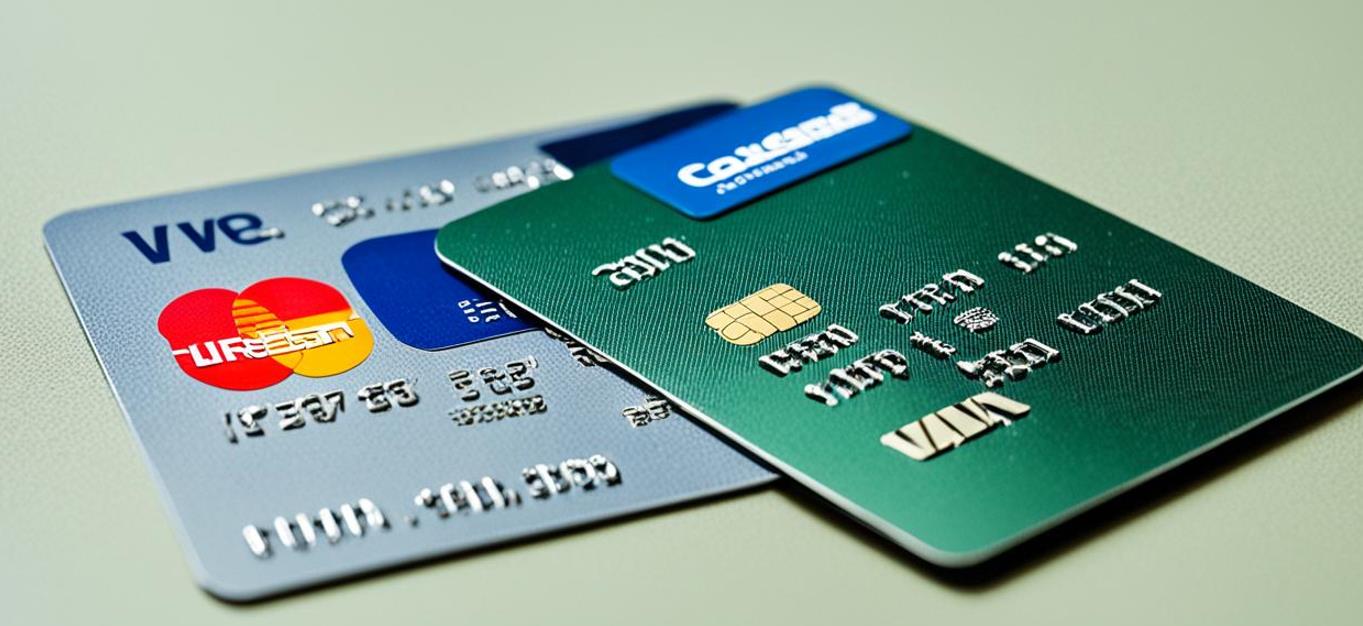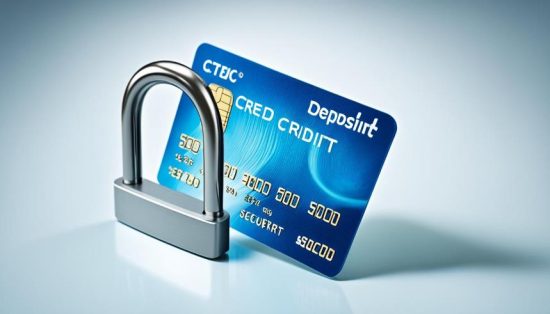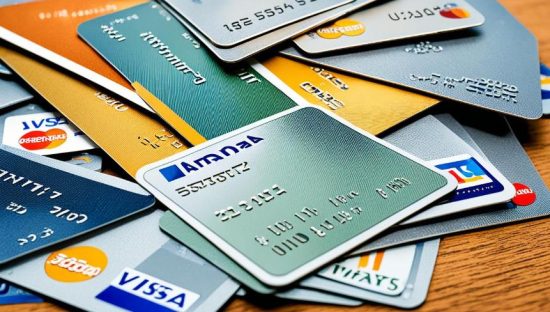
When it comes to choosing a credit card, the options can be overwhelming. Secured credit cards and unsecured credit cards are two popular choices, each with its own set of benefits and requirements. So, what exactly sets them apart?
Is one type of card better than the other? Are there any significant differences in their functionality and impact on your financial well-being? Understanding these distinctions is crucial for making an informed decision that aligns with your financial goals.
In this blog, we will delve into the world of secured and unsecured credit cards, exploring their unique features, advantages, and considerations. By the end, you will have a clear understanding of which type of card is the best fit for your needs.
What is secured credit cards?
A secured credit card requires a security deposit, serving as collateral and reducing the risk for issuers, making it accessible for individuals with limited or poor credit histories. It functions like a regular credit card, allowing purchases and payments within the credit limit set by the deposit amount. For example, a $500 deposit typically results in a $500 credit limit. Responsible use, such as timely payments and low credit utilization, can help improve credit scores. The security deposit may be refunded if the account is closed in good standing or upgraded to an unsecured card.
How The Secured Cards Function?
A secured credit card is a type of credit card that requires a security deposit as collateral. The security deposit serves as a key feature of secured credit cards and plays a crucial role in how they function.
When you apply for a secured credit card, you are typically required to make a deposit. This deposit serves as collateral for your credit limit and acts as a safeguard for the credit card issuer in case you are unable to repay your debts.
The amount of the security deposit is usually equal to your credit limit. For example, if you make a $500 security deposit, you will typically have a $500 credit limit. This means that you can only spend up to the amount of your security deposit.
The Security Deposit: A Key Feature
The security deposit acts as a form of protection for the credit card issuer. If you fail to make your payments, the issuer can use the security deposit to cover your outstanding balances. It provides reassurance to lenders that they won’t lose money if you default on your payments.
One important aspect of the security deposit is that it may be refundable. Some secured credit card issuers may offer the option to refund your security deposit if you exhibit responsible credit behavior over time. This means making timely payments and keeping your credit utilization ratio low.
Advantages of Choosing a Secured Credit Card
There are several advantages to choosing a secured credit card:
- Approval: Secured credit cards are easier to get approved for, making them a good option for individuals with poor or limited credit history.
- Credit Building: Responsible use of a secured credit card can help build or improve your credit score over time. By making on-time payments and keeping your credit utilization ratio low, you demonstrate to credit bureaus that you are a reliable borrower.
- Lower Interest Rates: Secured credit cards often come with lower interest rates compared to unsecured cards. This can save you money on finance charges if you carry a balance.
How Secured Credit Cards Impact Your Credit Score

Secured credit cards can have a positive impact on your credit score if managed properly. By using a secured credit card responsibly, you can improve several factors that influence your credit score:
- Credit Utilization: Secured credit cards can help keep your credit utilization ratio low. This is the amount of credit you use compared to your credit limit. The lower your credit utilization, the better it is for your credit score.
- Payment History: Making timely payments on your secured credit card demonstrates your ability to manage credit responsibly. Payment history is a significant factor in determining your credit score.
- Credit Building: As mentioned earlier, responsible use of a secured credit card can help establish or rebuild your credit history. This is especially beneficial if you have a limited credit history or previous credit issues.
What is unsecured credit cards?
An unsecured credit card does not require a security deposit, relying instead on the cardholder’s creditworthiness and financial history. These cards are typically available to individuals with good credit scores and responsible credit management. They offer the convenience of making purchases and repaying the balance later without needing collateral. Responsible use and timely payments can help build and improve the cardholder’s credit score over time.
How unsecured credit cards work?
Unsecured credit cards provide a line of credit without requiring collateral, relying on the borrower’s creditworthiness to determine the credit limit. The limit is based on factors such as credit score, income, and financial history, with higher scores and incomes often leading to higher limits. These cards typically have higher interest rates (APRs) and may include fees such as annual, late payment, and balance transfer fees. Repayment terms usually require a minimum monthly payment, but paying off the full balance each month is advisable to avoid interest charges. Understanding these aspects helps in choosing a card that aligns with your financial needs and goals.
What is the Difference Between Secured and Unsecured Credit Cards?
When comparing secured and unsecured credit cards, there are several key differences to consider. These differences revolve around credit limits and qualification criteria, interest rates and fees, as well as the credit building capabilities of each card type.

Comparing Credit Limits and Qualification Criteria
One of the primary distinctions between secured and unsecured credit cards is the credit limit and qualification criteria. Secured credit cards typically have credit limits that are equal to the amount of the security deposit. This means that the credit limit is directly linked to the amount of collateral provided. On the other hand, unsecured credit cards may offer higher credit limits based on the borrower’s creditworthiness. Qualification criteria for secured credit cards are generally more lenient, making them accessible to individuals with poor or limited credit history. In contrast, unsecured cards require a good credit history for approval.
Differences in Interest Rates and Fees
Interest rates and fees are another crucial factor that differentiates secured and unsecured credit cards. Secured credit cards tend to have lower interest rates compared to unsecured cards. This is because secured cards are backed by collateral, reducing the risk to the issuer. In contrast, unsecured credit cards may come with higher interest rates and fees. These rates and fees are determined by the borrower’s creditworthiness and the specific terms and conditions set by the card issuer.
Credit Building Capabilities of Each Card Type
Both secured and unsecured credit cards have the potential to help individuals build their credit history. However, they employ different approaches. Secured credit cards are specifically designed for credit building. By using these cards responsibly and making timely payments, borrowers can demonstrate their creditworthiness to credit bureaus. On the other hand, unsecured credit cards also contribute to building credit history when managed properly. They showcase a borrower’s ability to handle credit responsibly. Both card types play a crucial role in establishing and improving credit history.
Eligibility Criteria for Secured vs. Unsecured Credit Cards
Secured credit cards are easier to obtain, requiring a security deposit and designed for those with poor or limited credit history. Unsecured credit cards, however, require good credit history and creditworthiness, with no need for a security deposit. Your credit history and financial situation determine which type is suitable for you. Both options can help in rebuilding or establishing credit, but choosing the one that aligns with your qualifications and goals is crucial.
The Pros and Cons of Secured Credit Cards
Pros: Security and Credit Improvement
- Secured credit cards provide added security through a required security deposit, acting as collateral in case of payment default.
- This security deposit reduces the risk for the card issuer, resulting in lower interest rates and fees compared to unsecured cards.
- The security deposit offers peace of mind for consumers, knowing they have a financial safety net.
- Responsible use of secured credit cards, including timely payments and low balances, can improve your credit over time.
- Improved credit scores from using secured credit cards can make it easier to qualify for future credit opportunities with better terms and lower interest rates.
Cons: Limited Credit and Potential for Fees
- Secured credit cards typically come with lower credit limits compared to unsecured cards, as the credit limit is directly proportional to the security deposit provided.
- Limited credit can restrict purchasing power, making it challenging to handle large transactions or emergencies.
- Some secured credit cards may have potential fees, such as annual fees, monthly maintenance fees, or application fees.
- It is essential to carefully review the terms and conditions to understand the potential fees associated with a secured credit card.
- Responsible credit card usage can often minimize or avoid these fees altogether.
Navigating Around Common Secured Card Limitations
Secured credit cardholders can navigate limitations by demonstrating responsible use, potentially qualifying for credit limit increases over time. Maintaining a low balance and paying off the full balance each month positively impacts credit scores. Using the card for small, regular purchases and timely payments establishes positive credit behavior. Responsible use of secured credit cards can improve credit scores, lower interest rates, and pave the way to qualifying for unsecured credit cards.
Advantages and Disadvantages of Unsecured Credit Cards
When considering which type of credit card to choose, it’s important to weigh the advantages and disadvantages of unsecured credit cards. These cards offer unique perks and benefits, but they also come with potential pitfalls that you should be aware of.

Unsecured Card Perks: Rewards and Flexibility
Unsecured credit cards offer the perk of earning rewards, such as points, cash back, or other incentives for purchases. These rewards can be redeemed for travel, merchandise, or statement credits, adding value to your spending. Additionally, unsecured cards provide higher flexibility with typically higher credit limits, offering greater borrowing power. This is beneficial for managing significant expenses or needing a larger line of credit. Overall, unsecured credit cards offer both rewards and financial flexibility.
Potential Pitfalls: Debt Accumulation and Higher Interest
While unsecured credit cards offer rewards and flexibility, they also come with potential pitfalls. The absence of collateral makes it easier to accumulate debt on these cards. Without the security deposit required by secured cards, it may be tempting to overspend and carry balances from month to month, leading to a cycle of debt accumulation.
Additionally, unsecured credit cards often have higher interest rates compared to secured cards. This means that if you carry a balance on your card and make only minimum payments, you’ll end up paying more in interest over time. It’s important to be mindful of this and pay off your balance in full each month to avoid unnecessary interest charges.
Choosing Wisely Based on Spending Habits
When choosing between secured and unsecured credit cards, consider your spending habits and credit history. A secured credit card is ideal for those with limited credit history or looking to rebuild credit, as the security deposit provides a safeguard. If you have good credit and responsible spending habits, an unsecured credit card with rewards and higher limits may be more beneficial. Assess the perks, pitfalls, and your financial goals to make an informed decision. Selecting the right card can help you achieve your financial objectives effectively.
Steps to Choose the Right Credit Card for Your Needs
To choose the right credit card for your needs, follow these steps:
1. Assess your credit history and score to determine your eligibility for secured or unsecured credit cards.
2. Consider your financial goals and spending habits to identify the features and perks you value most.
3. Research and compare different credit card options, considering factors such as interest rates, fees, credit limits, and rewards programs.
4. Read the terms and conditions carefully to understand the card’s requirements and limitations.
5. Apply for the credit card that aligns with your needs, keeping in mind the credit score requirements and the application process.
Before making a decision, it’s essential to assess your credit history and score. This step will help you determine whether you qualify for secured or unsecured credit cards. Secured cards require a security deposit, while unsecured cards do not. Consider your financial goals and spending habits to identify the features and perks that hold value for you. If you want to earn rewards, look for cards with generous rewards programs. If you’re concerned about fees, compare different cards to find the ones with lower fees.
FAQs on Secured and Unsecured credit cards
How do secured credit cards impact your credit score?
By using a secured credit card responsibly, making on-time payments, and keeping your credit utilization low, you can demonstrate to credit bureaus that you are a reliable borrower, which can boost your credit score over time.
Can I transition from a secured to an unsecured credit card?
Yes, many banks allow transitioning from a secured to an unsecured credit card after demonstrating responsible usage and improving credit scores. This process often involves a review of your account and credit history.
Who should consider getting a secured credit card?
Individuals with no credit history or those looking to rebuild their credit should consider a secured credit card. It helps establish a positive credit record when used responsibly






